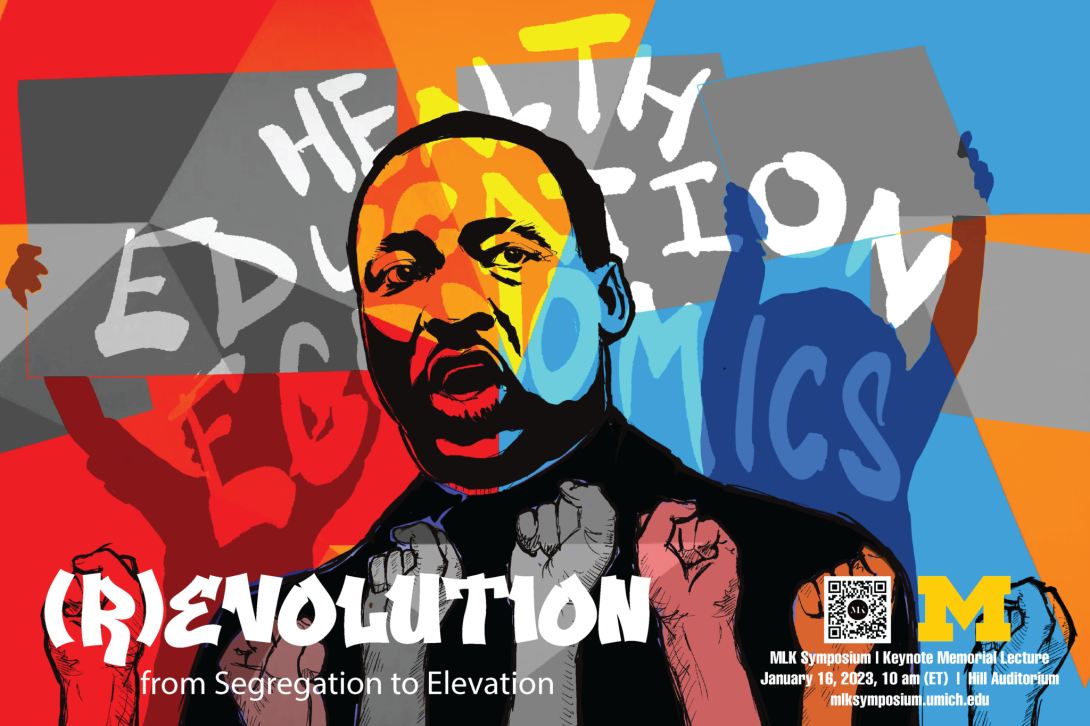On Monday, January 16, in honor and celebration of the legacy of Dr. Martin Luther King, Jr. a number of events took place for members of our community.
The keynote address included a dynamic mix of local and national speakers and performances, and we are excited to host the event in person for the first time since 2020. If you were not able to watch the address in-person or as a livestream video, you can access the recording here.
This year’s theme, “The (R)evolution of MLK: from Segregation to Elevation,” explored King’s activism after 1964, highlighting the evolution of King’s primary focus on segregation to a broader, more radical, and revolutionary platform that included health, economics, and education.
Three panelists from different perspectives explored beyond King’s legacy of “I Have a Dream” and “nonviolence” to a discussion that centered on King’s more challenging and complex legacy calling for our society to seek solutions to the cultural, economic and governmental root causes of racism.
Health Care as a Human Right
“Of all the forms of inequality, injustice in health care is the most shocking and inhumane.”
Social and Economic Justice
“We must see now that the evils of racism, economic exploitation and militarism are all tied together. And you can’t get rid of one without getting rid of the other.”
The Battleground of Education
“It was not fortuitous that education became embroiled in this conflict.” “…Education is one of the vital tools the Negro needs in order to advance. And yet it has been denied him by devices of segregation and manipulations with quality.”
In addition to a moderated panel, The (R)evolution of Dr. King was demonstrated through the premier performance of “Black Pilgrims,” a hip-hop and electronic mini-opera/oratorio depicting a sung and spoken fictional conversation between King and Malcolm X.
In closing, the event featured Vincent Bohanan’s song, “We Win,” performed by the Voices of Distinction from the Detroit School of Arts, and conducted by Julian Goods, a graduate of the University of Michigan.

